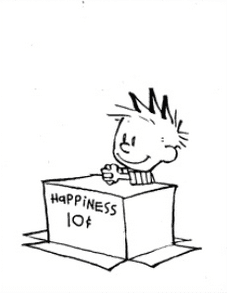When I wrote about the two conflicting words that lead to poor customer service, I had no idea it would touch such a nerve. The comment I received the most from people who work in customer service can be paraphrased in this simple statement:
“Well, maybe you’re right but the customers suck!!”
I thought about this for a while. As customers, do we get the customer service we deserve? If we really are a bunch of over-demanding, inconsiderate, arrogant, condescending jerks, then maybe we deserve to get service that’s indifferent, impersonal, underwhelming and occasionally flat-out rude. Have we turned into a planet that’s full of people who are “That Guy?” I might be an optimist, but I don’t think we are.

So why do we, as customers, have such a bad reputation with those who work with us on a daily basis? I really think it’s the few that are ruining it for the many. If you work dealing with customers for 8 hours straight and ONE person in that shift is an idiot, that’s the one you’re going to remember. You’re gonna tell your co-workers how this person yelled at you for no reason, cursed you out over $2 and threatened to get you fired because you couldn’t do what they wanted you to. You’ll think about it on the ride home. Talk about it over dinner. You’re gonna post on Facebook or Twitter a clever meme to express your feelings (and trust me, there are tons of these memes out there)
That one person has now ruined it for all of us. We might be the next person on the phone who talks with this employee. Are we going to get good service? Probably not. Is the employee going to go out of his/her way to help us with the problem we have? Doubt it. So as customers, what can we do? As customers, we’re often dealing with large corporations, so let’s take the approach they would take to address the problem.
Let’s pretend that as customers, we’re all part of the “Customer Corporation” and we need to improve our image, which is currently viewed as us being a large group of idiots that have to be tolerated on a daily basis. I’ll act as a consultant to help us along this journey. Most of the negative interactions happen when there’s a problem so we’ll focus on how to improve those events. Corporations spend time training their employees on how to deal with problems, so maybe it’s time that we, as customers, learn how to best deal with these situations as well.
Step 1
When you have a problem, don’t become the problem

We all must realize that there are times when we might be the person who is causing the problem. You might not know it at the time but if you’re getting upset and escalating a situation without thinking about your comments, at that particular moment, you are the problem. Did you know what you wanted when you started this transaction? Was that a reasonable thing to ask for? Are you willing to accept a different outcome? Just being angry isn’t going to get you anywhere.
Let’s say you reserved a hotel room that was supposed to be ready at 3 PM, but you arrived at 11 AM. Would it be reasonable to get upset if there are no rooms available? What if you have to wait until 3 PM to get a room? Or maybe you have to wait until 3:19 PM. Do you think you deserve some kind of compensation for the inconvenience? Ask yourself if your expectations are reasonable.
People often fall into the trap of expecting more than they should and that’s really easy to do with the amount of information available to us today. The “But I read that someone else received this so why aren’t I getting the same thing they did?” logic just doesn’t make sense. You have no right to complain when you receive something less than another guest as long as you received what you were originally promised. Just because one person got a little extra treatment doesn’t mean you’re entitled to the same. You might not get that suite upgrade if the hotel is full and it doesn’t matter if you read this hotel usually provides them. Getting angry about it doesn’t help our position as customers. Expect to get what you paid for, nothing more.
Step 2
Be an active participant in solving the problem
When approaching an employee for help, it’s important to remember that not all customers are the same. Try to maintain a friendly demeanor and be clear about the reason for your visit. Avoid telling long stories that don’t relate to your request, as this can be frustrating for the employee. Instead, tell them upfront what you need, and if necessary, provide additional context afterward. By being respectful and clear in your communication, you’ll be more likely to receive the help that you need.
When you are communicating with an employee, it’s important to listen to their response and understand that they may require additional information in order to assist you. It’s important not to become frustrated or defensive when they ask for more details. Remember, the goal is to demonstrate to the employee that not all customers are difficult. To ensure that the employee can effectively assist you, you need to be clear about your needs and provide any required information. If they ask for your address, for example, it’s because they need that information to do their job.
Step 3
Avoid roadblocks and keep working toward a resolution
When there’s a problem, it’s OK if you need to stand your ground but be understanding. Your problem might not be able to be resolved right away. Listen to any alternate solutions that are provided. Will that be sufficient until a better solution can be found? Maybe the car you reserved isn’t available. Would you be willing to take a different car? If not, explain why so that your situation is clear. Can you return the next day? It’s OK to ask what type of compensation will be provided for you accepting something different than you expected but don’t be unreasonable.
It’s common for customers to lose sight of what’s important when things go wrong. Instead of focusing on what they want, they should focus on what they need. For example, if you’re flying and the flight is delayed, what you want is for the flight to leave on time, but sometimes that’s not possible. What you need, however, is to get to your destination. The same applies to other services like hotels and car rentals. You may have booked a specific room or car, but what you need is a place to stay or transportation.
It’s important to remember that no company wants to fail to provide a service. So instead of demanding compensation right away, try to come up with a solution first. Only then should you ask what they can offer in return for accepting something different than what was promised. Otherwise, you may come across as greedy and not really interested in finding a solution. Always aim for a positive outcome, even if it’s not exactly what you had originally planned.
Most importantly, AVOID THIS PHRASE AT ALL COSTS! “I always have a problem when dealing with your company.”
It’s important to keep in mind that the employee you’re currently speaking with is not responsible for any previous issues you may have had. It’s best to approach the situation with an open mind and avoid blaming them for past problems. Doing so can help you reach a resolution faster. Additionally, it’s important to avoid being labeled as a “perpetual complainer” by focusing on the current issue at hand and not bringing up past problems. This can help you maintain a positive relationship with customer service representatives. On a related note, it’s worth considering whether it’s worth continuing to do business with a company that consistently provides poor service. By acknowledging and addressing the issue upfront, you can work towards a mutually beneficial solution.
Review

We’ve gone over three ways to be a better customer.
- When you have a problem, don’t BECOME the problem
- Be an ACTIVE participant in solving the problem
- Keep your sight on the goal and keep working to get to a resolution
Simply keeping these three points in mind will help you when faced with these situations. It also will hopefully prevent you from becoming the example the employee gives when talking to co-workers about the idiots they have to deal with today.
Maybe, just maybe, if more of us act in a way where we don’t look like greedy, unreasonable jerks we can turn the tide so people in customer service jobs will no longer be able to say, “The customer is always WRONG!”
Want to comment on this post? Great! Read this first to help ensure it gets approved.
Want to sponsor a post, write something for Your Mileage May Vary, or put ads on our site? Click here for more info.
Like this post? Please share it! We have plenty more just like it and would love it if you decided to hang around and sign up to get emailed notifications of when we post.
Whether you’ve read our articles before or this is the first time you’re stopping by, we’re really glad you’re here and hope you come back to visit again!
This post first appeared on Your Mileage May Vary




3 comments
[…] to stop filming airline employees over every minor squabble. I’d put this in the category of “being a good customer” but everyone wants their shot at fame, or a nice […]
Another good post, and a helpful reminder. Thanks.
Thank you for a very interesting article. I invariably arrive early at the hotel when I am travelling so I go to reception, say that I know I am early but could I leave my bag please. One of two things then happen. The receptionist either says yes and directs me to where I can leave it or says ‘let me just check to see whether your room is ready’. On occasion I have been told ‘the room is almost ready. Take this voucher to the lounge and have a drink of your choice. I will come and tell you when your room is ready’. I have always found that courtesy will always be appreciated and a little goes a long way.